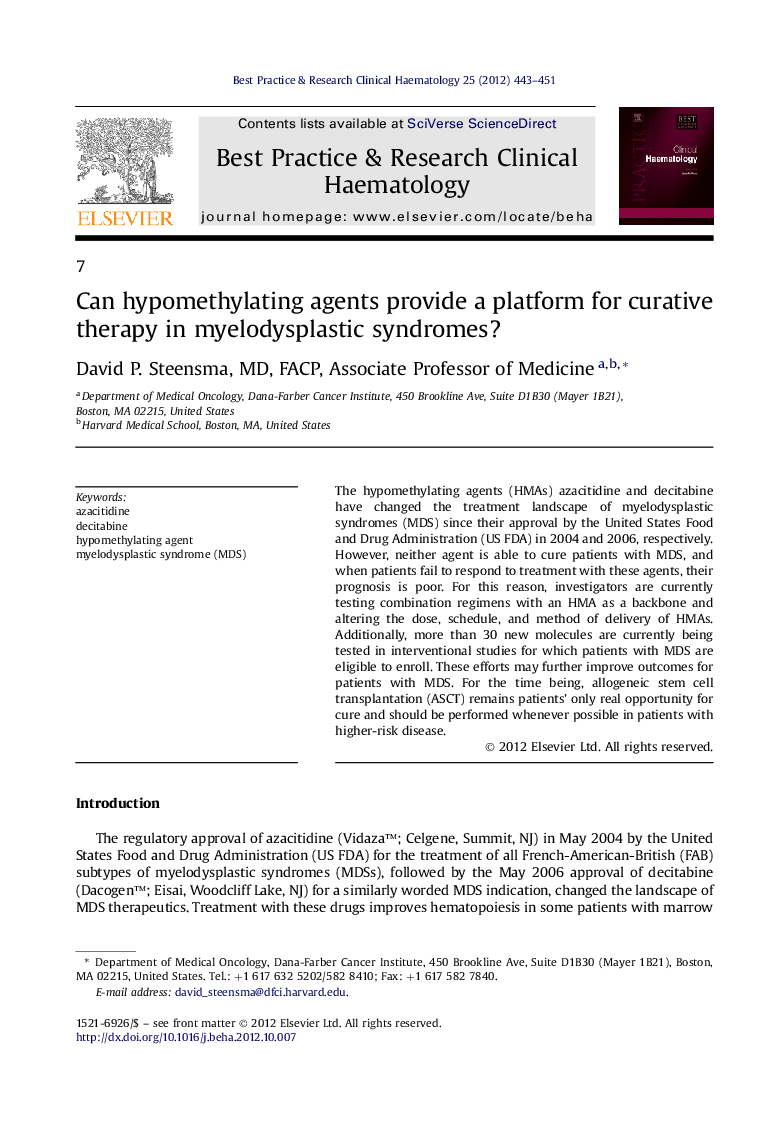| کد مقاله | کد نشریه | سال انتشار | مقاله انگلیسی | نسخه تمام متن |
|---|---|---|---|---|
| 2100192 | 1082986 | 2012 | 9 صفحه PDF | دانلود رایگان |

The hypomethylating agents (HMAs) azacitidine and decitabine have changed the treatment landscape of myelodysplastic syndromes (MDS) since their approval by the United States Food and Drug Administration (US FDA) in 2004 and 2006, respectively. However, neither agent is able to cure patients with MDS, and when patients fail to respond to treatment with these agents, their prognosis is poor. For this reason, investigators are currently testing combination regimens with an HMA as a backbone and altering the dose, schedule, and method of delivery of HMAs. Additionally, more than 30 new molecules are currently being tested in interventional studies for which patients with MDS are eligible to enroll. These efforts may further improve outcomes for patients with MDS. For the time being, allogeneic stem cell transplantation (ASCT) remains patients' only real opportunity for cure and should be performed whenever possible in patients with higher-risk disease.
Journal: Best Practice & Research Clinical Haematology - Volume 25, Issue 4, December 2012, Pages 443–451